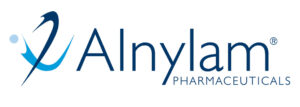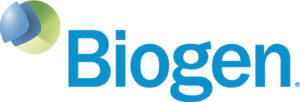Precision medicines are gaining increasing traction in healthcare. Here are five companies driving the field with recent approvals in RNA therapeutics, cell and gene therapies, and more.
Medicines have traditionally been given to patients in a one-size-fits-all approach, with many patients failing to benefit and experiencing side effects. This challenge is leading the field to shift toward precision medicine, where treatments are tailored to specific disease or patient subgroups to increase their effectiveness.
Precision medicine was once limited to the realm of science fiction but now more than a quarter of all new therapeutics approved since 2015 have a precision or personalized component, according to the Personalized Medicine Coalition. This covers a wide range of modalities, including small molecules, antibodies and cell and gene therapies. It also provides treatment alternatives for people with cancer in addition to rare conditions such as spinal muscular atrophy (SMA), Duchenne muscular dystrophy and hemophilia.
The market for precision medicines was valued at around $29.1 billion in 2023 and is predicted to grow to $50.2 billion by 2028, according to a report by MarketsandMarkets. This growth is expected to be fuelled by the increasing presence of targeted therapeutics in the market. It is also flourishing as high-throughput DNA sequencing and artificial intelligence (AI)-driven analytics become more accessible to help physicians identify which patients can benefit the most from a treatment.
The lightning growth of precision medicine in healthcare is attracting the attention of investors, particularly in oncology and in drug discovery. In a recent survey, more than half of life sciences investors were interested in opportunities in precision medicine along with AI and cell and gene therapy. And a plethora of big pharma companies are building up their precision medicine expertise, including Novartis, Pfizer, Roche, Johnson & Johnson, and more.
The last couple of years alone has seen some monumental approvals by the U.S. Food and Drug Administration (FDA) in precision medicine. Here are five players that have made a big impact on precision medicine based on recent approvals in the field.
1. Alnylam Pharmaceuticals
Founded: 2002 | Headquarters: Cambridge, Massachusetts, U.S.
FDA approval: Amvuttra, 2022
Alnylam focuses its research and development on drugs based on RNA. The name is derived from Alnilam, the center star in the Orion’s belt constellation, and also means a “string of pearls” in Arabic, which is a reference to the nucleotide strands that make up RNA.
In particular, Alnylam develops therapeutics based on a type of RNA called small interfering (si)RNAs. The drugs, delivered into patients via lipid nanoparticles, selectively silence RNAs that would normally be transcribed into proteins in the cell. This makes them prime candidates for taking on rare diseases caused by mutations in vital proteins.
After many ups and downs over its development, Alnylam achieved its first FDA drug approval in 2018, namely of Onpattro (patisiran) for the treatment of peripheral nerve disease (polyneuropathy) caused by hereditary transthyretin-mediated amyloidosis (hATTR).
Over the following years, Alnylam received subsequent FDA green lights for other products Givlaari (givosiran) and Oxlumo (lumasiran), with the latest approval being for Amvuttra (vutrisiran) for the treatment of polyneuropathy of hATTR.
Amvuttra is designed to be administered subcutaneously once every three months, potentially making it more comfortable for patients than Onpattro, which is administered via intravenous infusion once every three weeks. Amvuttra was approved based on results from a Phase III trial where it beat the placebo group at reducing disease severity.
Alnylam is now testing Amvuttra with a biannual regimen and as a treatment for patients with ATTR amyloidosis with cardiomyopathy. Among other candidates, the firm is also developing the drug fitusiran in Phase III for the treatment of hemophilia.
2. Biogen
Founded: 1978 | Headquarters: Cambridge, Massachusetts, U.S.
FDA approval: Qalsody, 2023
Biogen began its life as Biotechnology Geneva and evolved into its final form following a number of mergers over the years.
The company has had a rollercoaster history. Over the last decade, it has hit the headlines with highlights such as the approval of the SMA therapy Spinraza (nusersin) in 2016 and the controversial accelerated approval of its antibody treatment Aduhelm (aducanumab) in 2021, despite lacking evidence of its clinical benefit in patients with Alzheimer’s disease.
The accelerated approval of Biogen’s candidate Qalsody (tofersen) this year marked the fourth approved treatment for patients with the rare disease amyotrophic lateral sclerosis (ALS). The antisense oligonucleotide drug, product of a collaboration between Biogen and Ionis Pharmaceuticals, is the first approved therapy to block mutated forms of SOD1 that occur in rare cases of ALS.
The approval decision was based on Qalsody’s ability to reduce plasma levels of neurofilament light chain (NfL), an emerging biomarker of neurodegeneration. The company also noted trends of improvement in disease symptoms in the treatment group, but they were not statistically significant. Therefore, Biogen will still need to back up the clinical benefit in confirmatory trials going forward.
In addition to its approved products, Biogen is developing a pipeline of treatments for conditions including systemic lupus erythematosus, acute ischemic stroke and essential tremor.
3. BioMarin
Founded: 1997 | Headquarters: Novato, California, U.S.
FDA approval: ROCTAVIAN, 2023
BioMarin focuses on the development of treatments for rare diseases underserved by current treatments. One example is Aldurazyme, which the company says was inspired by the experience of a father wanting to develop a treatment for his son with the condition mucopolysaccharidosis I.
The firm has also marketed treatments for other rare diseases including Maroteaux–Lamy syndrome, Lambert–Eaton myasthenic syndrome, Morquio A syndrome and more.
BioMarin’s latest approval by the FDA was the gene therapy ROCTAVIAN 2023. The therapy is designed to tackle hemophilia A, a bleeding disorder caused by a mutation in a gene encoding the protein factor VIII (FVIII).
The standard treatment for hemophilia A is a lifelong preventative therapy involving regular injections of healthy FVIII. In contrast, ROCTAVIAN is a one-off injection providing a functional copy of FVIII, reducing the amount of prophylactic treatment the patient needs.
ROCTAVIAN’s approval was by the European Medicines Agency (EMA) in 2022. The regulators’ decisions were based on data from a phase 3 trial where those receiving the gene therapy saw a drop in their annualized bleeding rate while receiving FVIII prophlaxis.
BioMarin sees approximately 2,500 patients that could be eligible for ROCTAVIAN in the U.S. According to Clarivate, ROCTAVIAN has the potential to become a blockbuster.
ROCTAVIAN’s approval also coincided with the FDA greenlight of Hemgenix, the first gene therapy for hemophilia B developed by uniQure and CSL Behring.
4. Johnson & Johnson
Founded: 1886 | Headquarters: New Brunswick, New Jersey, U.S.
FDA approval: Carvykti, 2022
CAR-T cell therapies have caught the imagination of the biotech and pharma industry for their potential to effectively cure forms of blood cancer in some patients. The therapies involve extracting a patient’s immune T cells, engineering them in a lab to hunt down cancer cells and then reinfusing them into the patient.
The first CAR-T therapies—Novartis’ Kymriah and Gilead’s Yescarta—were approved by the FDA in 2017 as treatments of the blood cancers B-cell precursor acute lymphoblastic leukemia and large B-cell lymphoma respectively. They were approved for use only in patients whose cancers had relapsed after multiple lines of cancer therapy.
In 2017, the Janssen Pharmaceutical Companies of Johnson & Johnson teamed up with the Chinese company Legend Biotech to get their own candidate in the CAR-T race. The partnership paid off in 2022 when Carvykti (ciltacabtagene autoleucel) gained FDA market approval for the fifth-line treatment of multiple myeloma.
Of the current CAR-T therapies in the market, Carvykti has the most in common with Abecma, which was developed by Bristol-Myers Squibb. Abecma was approved by the FDA in 2021, also for the fifth-line treatment of multiple myeloma. The main differences between the two are that they bind slightly differently to their target, BCMA, and Carvykti has a lower recommended dose.
As with all approved CAR-T therapy developers, Janssen is striving to have Carvykti approved for earlier stages of blood cancer treatment, which will allow the therapy to reach more patients.
5. Novartis
Founded: 1996 | Headquarters: Basel, Switzerland
FDA approval: Pluvicto, 2022
Novartis was born as a result of a merger between the companies Ciba-Geigy and Sandoz. The name is derived from the Latin phrase “novae artes,” or “new skills,” which the company says embodies its commitment to research and development in new medicines.
The big pharma company has a wide range of products on the market, and one recent approval, that of Pluvicto (Lutetium (177Lu) vipivotide tetraxetan) in 2022, adds weight to the emerging field of radiopharmaceuticals: drugs that carry a radiotherapy agent directly to a tumor.
Novartis’s strong interest in radiopharmaceuticals led it to acquire key developers of these therapies, including Advanced Accelerator Applications (AAA) in 2017 and Endocyte in 2018. The takeover of AAA gained Novartis access to the approved radiopharmaceutical Lutathera for the treatment of neuroendocrine tumors. Meanwhile, the incorporation of Endocyte let Novartis snap up what would later be Pluvicto, which is indicated for the treatment for a type of metastatic prostate cancer.
Radiopharmaceutical drugs provide a more targeted approach to cancer treatment than regular radiotherapy, which typically involves beaming radiation into a wide area in the patient’s body. The compounds zoom in on cancer cells expressing a particular target—PSMA in the case of Pluvicto—and blast them at close range. In parallel with Pluvicto, the FDA greenlit a complementary diagnostic imaging agent, Locametz, to identify patients that were likely to benefit from the therapy.
Radiopharmaceuticals are a hot commodity in oncology right now and other companies working in this field include Bayer and ITM Isotope Technologies Munich along with startups such as Rayze Bio and Aktis Oncology.
Jonathan Smith is a freelance science journalist based in the U.K. and Spain. He previously worked in Berlin as reporter and news editor at Labiotech, a website covering the biotech industry. Prior to this, he completed a PhD in behavioral neurobiology at the University of Leicester and freelanced for the U.K. organizations Research Media and Society of Experimental Biology. He has also written for medwireNews, Biopharma Reporter and Outsourcing Pharma.


















